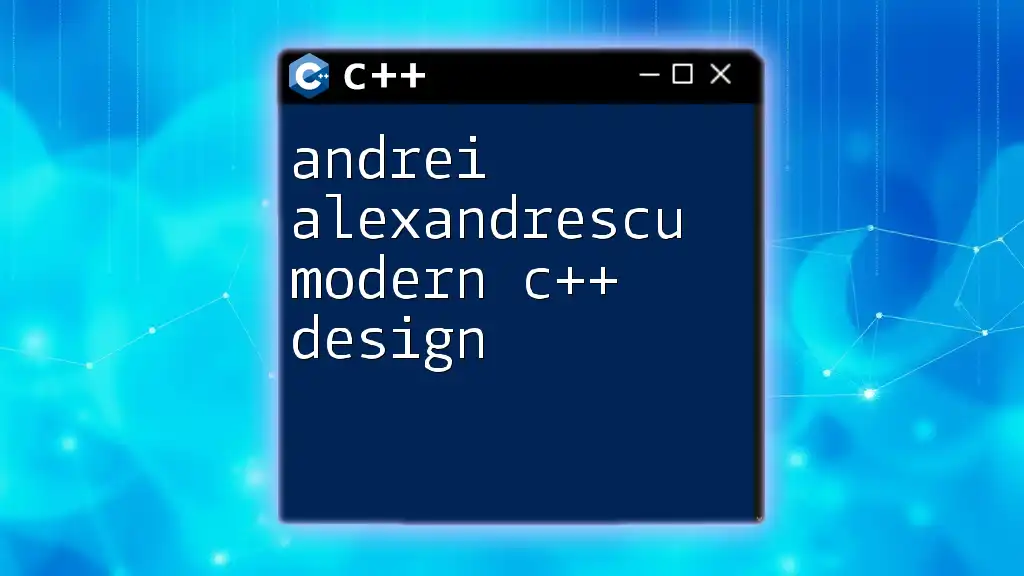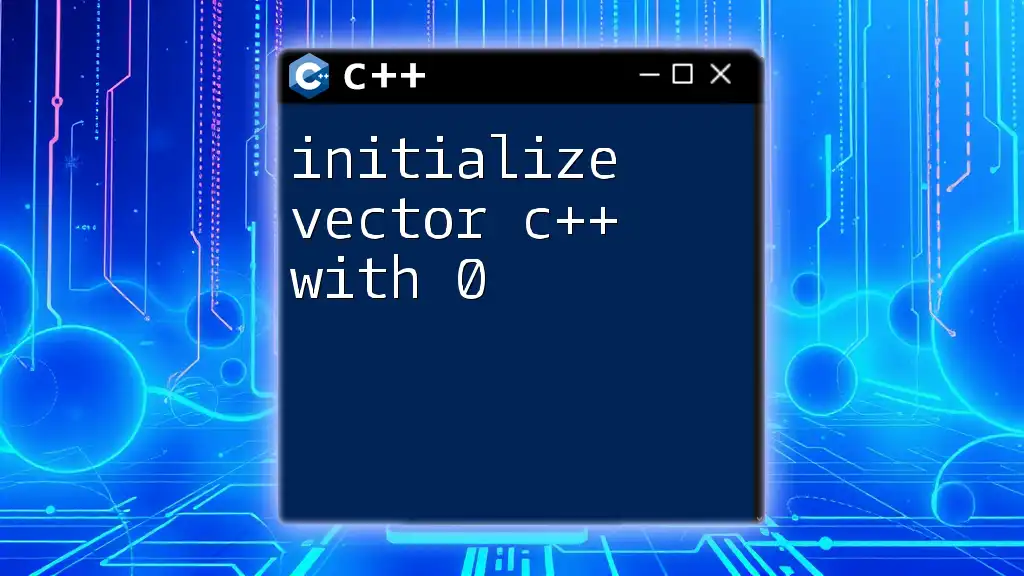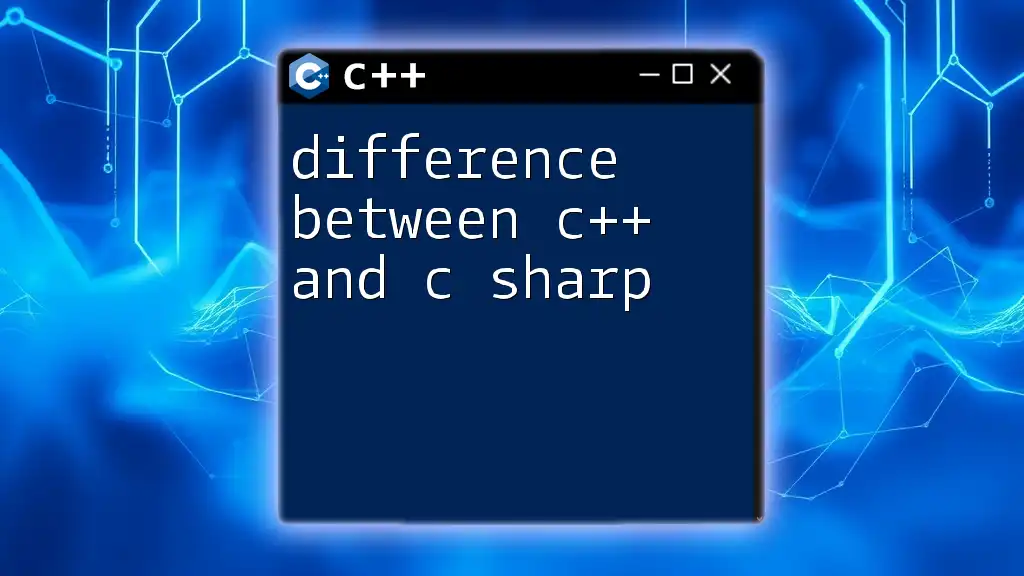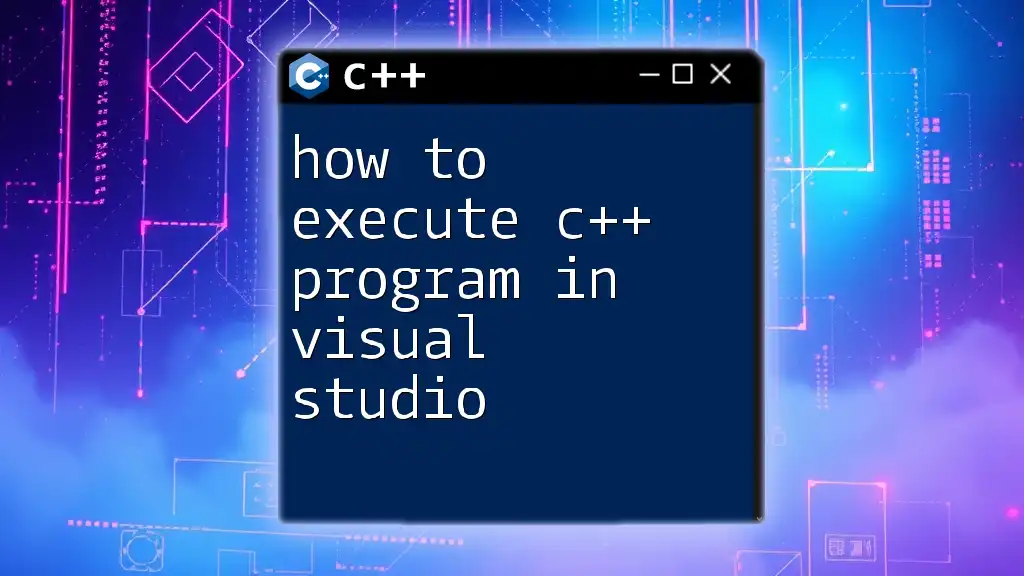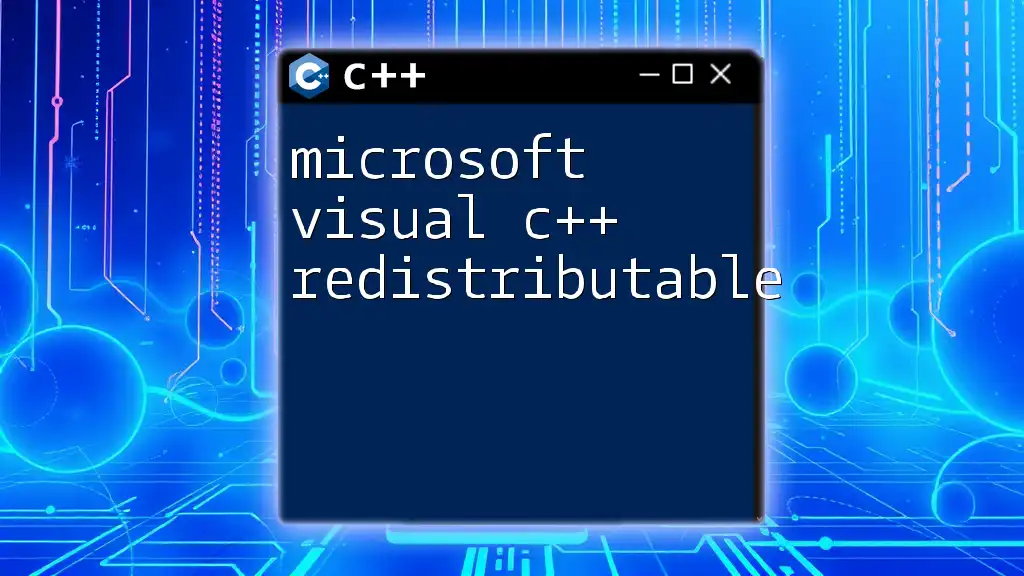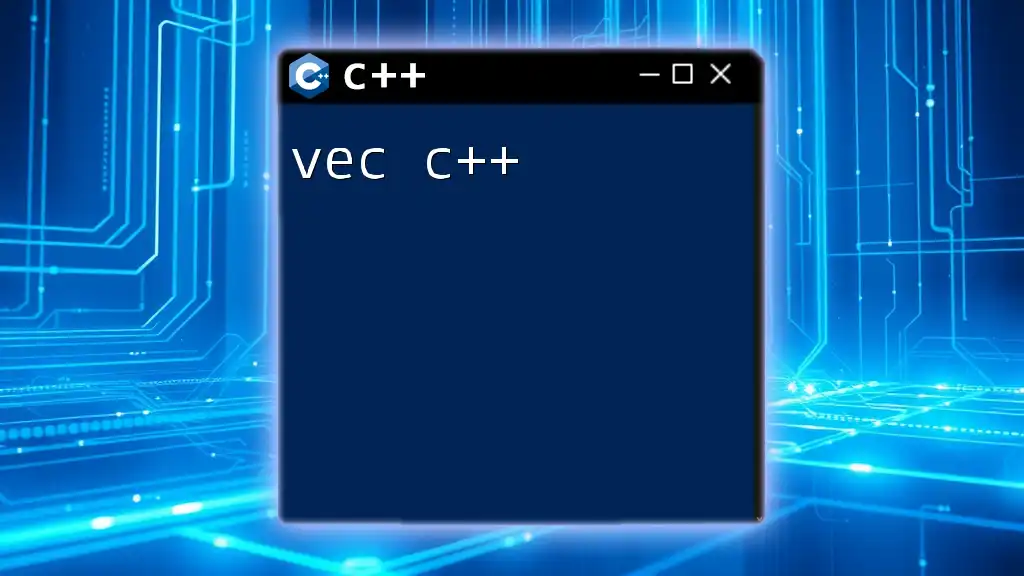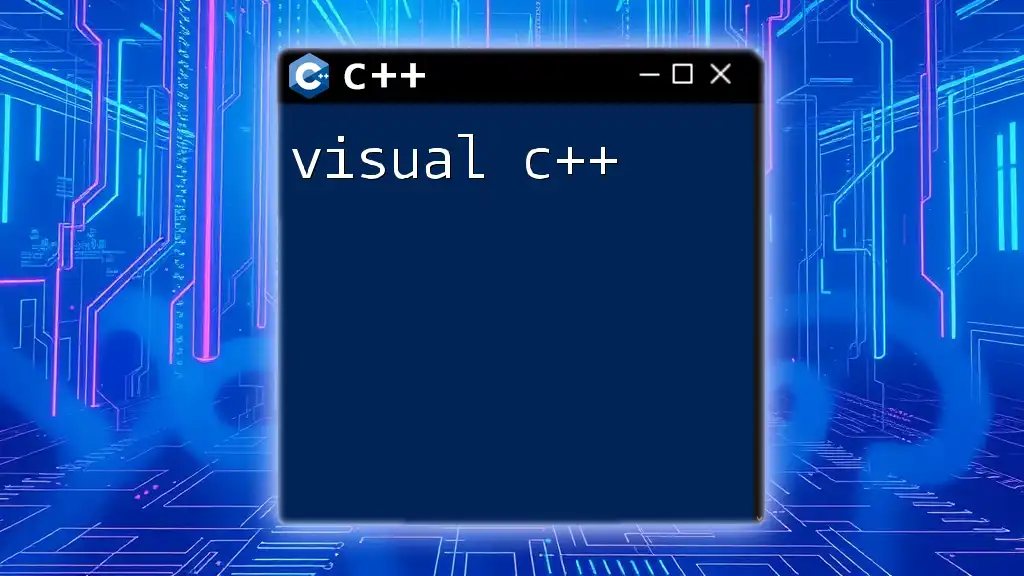Andrei Alexandrescu's "Modern C++ Design" introduces advanced design patterns and strategies using templates, enabling developers to create flexible and efficient software architectures.
Here's a code snippet showcasing a simple template-based factory pattern:
#include <iostream>
#include <memory>
template <typename T>
class Factory {
public:
static std::unique_ptr<T> create() {
return std::make_unique<T>();
}
};
class Product {
public:
void info() {
std::cout << "Product created!" << std::endl;
}
};
int main() {
auto product = Factory<Product>::create();
product->info();
return 0;
}
Understanding Modern C++ Design
What is Modern C++?
Modern C++ refers to the evolution of the C++ programming language, particularly the features introduced in the C++11 standard and subsequent versions like C++14, C++17, and C++20. This evolution emphasizes not only efficiency and performance, but also code elegance, clarity, and ease of maintenance.
Generic Programming is at the heart of modern C++. It allows developers to write code that is type-independent, enabling greater flexibility and reusability. This approach has been greatly influenced by the principles championed by Andrei Alexandrescu.
The Philosophy Behind Alexandrescu's Designs
Andrei Alexandrescu has profoundly impacted the C++ landscape through his emphasis on performance and efficiency. His philosophy underscores the importance of code reusability, which enhances maintainability and scalability. One of the fundamental aspects of Alexandrescu's approach is balancing power and complexity.
While powerful features can significantly enhance a developer's ability to solve problems, they can also introduce complexity that can make code difficult to understand or maintain. Alexandrescu's work often revolves around utilizing C++ features to create robust, elegant solutions while minimizing unnecessary complexity.
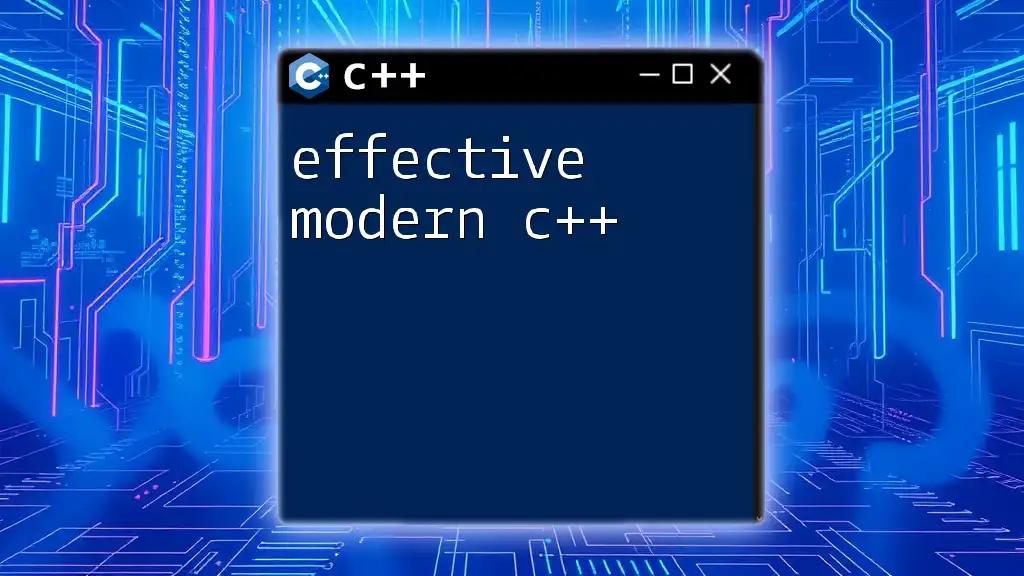
Key Concepts in Alexandrescu's Modern C++ Design
Design Patterns in Modern C++
Design patterns are proven solutions to common software design problems. In Modern C++ design, these patterns are adapted to leverage the language's unique strengths. Understanding and applying these patterns is critical for developing maintainable and efficient code.
A few noteworthy patterns include Creational (like Singleton), Structural (like Adapter), and Behavioral patterns (like Observer). Each pattern serves a specific purpose, offering different ways to tackle common challenges in software design.
Applying Alexandrescu's Patterns
The Policy-Based Design
One of Alexandrescu’s key contributions is the Policy-Based Design pattern, which focuses on making components highly customizable without sacrificing performance.
Benefits:
- Improved code modularity
- Enhanced performance through compile-time optimizations
- Simplified testing and maintenance
For example, you might represent a container that can adopt different behavior policies:
template <typename T, typename Policy>
class MyContainer {
public:
void performAction() {
Policy::apply(); // Delegates behavior to policy
}
};
In this way, the behavior of `MyContainer` can be adjusted by simply changing the policy passed to it, greatly increasing flexibility while retaining efficiency.
Type Traits and Metaprogramming
Type Traits are a powerful feature in C++ that enable the programmer to determine types at compile time, thus facilitating template specialization and stronger type guarantees. Through metaprogramming, type traits can help ensure that certain operations are only performed on valid types.
A useful application of type traits is in creating template functions that enforce constraints. For example:
template<typename T>
void process(T value) {
static_assert(std::is_integral<T>::value, "Must be integral type!");
// Process value...
}
Here, the `static_assert` guarantees that the function `process` can only be called with integral types, improving type safety.
Range-Based Policies
Furthering the complexity-reducing philosophy, Alexandrescu introduces range-based policies. These allow for greater flexibility when designing algorithms that work with collections of data.
Advantages:
- Increased readability of the code
- Leveraging modern C++ features for succinctness
An example implementation would look like this:
template <typename Container>
void processContainer(const Container& cont) {
for (const auto& item : cont) {
// Process each item...
}
}
This emphasizes the use of range-based features in C++, allowing for cleaner and more expressive code.
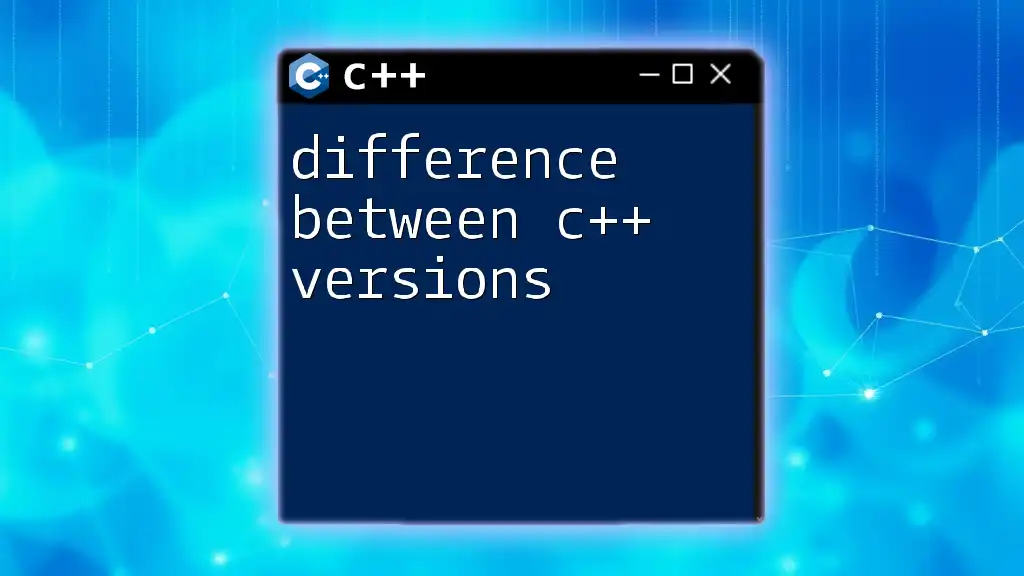
Modern C++ Techniques Inspired by Alexandrescu
The Art of Efficient Algorithms
Efficiency is a central tenet of Modern C++ Design. Alexandrescu champions algorithms that harness the language's capabilities to minimize overhead while maximizing performance.
When implementing algorithms, developers often face trade-offs between performance and readability. This balance can be achieved by applying techniques such as algorithmic optimizations without losing clarity.
For instance, when filtering negative integers from a vector, one can utilize the standard library to produce clear and efficient code:
std::vector<int> filterNegative(const std::vector<int>& vec) {
return std::vector<int>(vec.begin(), std::remove_if(vec.begin(), vec.end(),
[](int x) { return x < 0; }));
}
This approach, while straightforward, efficiently constructs a new vector of only non-negative integers, demonstrating how one can leverage C++ features for both efficiency and clarity.
Mastering Templates in C++
Templates are one of the cornerstones of modern C++ programming. They allow for the creation of generic components that can operate on different data types, providing significant benefits such as code reusability and type safety.
For example, a simple implementation of a template-based wrapper class might look like this:
template<typename T>
class Wrapper {
public:
Wrapper(T value) : value(value) {}
T get() const { return value; }
private:
T value;
};
This `Wrapper` class can function with any data type `T`, showcasing the power of templates in allowing for type-generic programming.
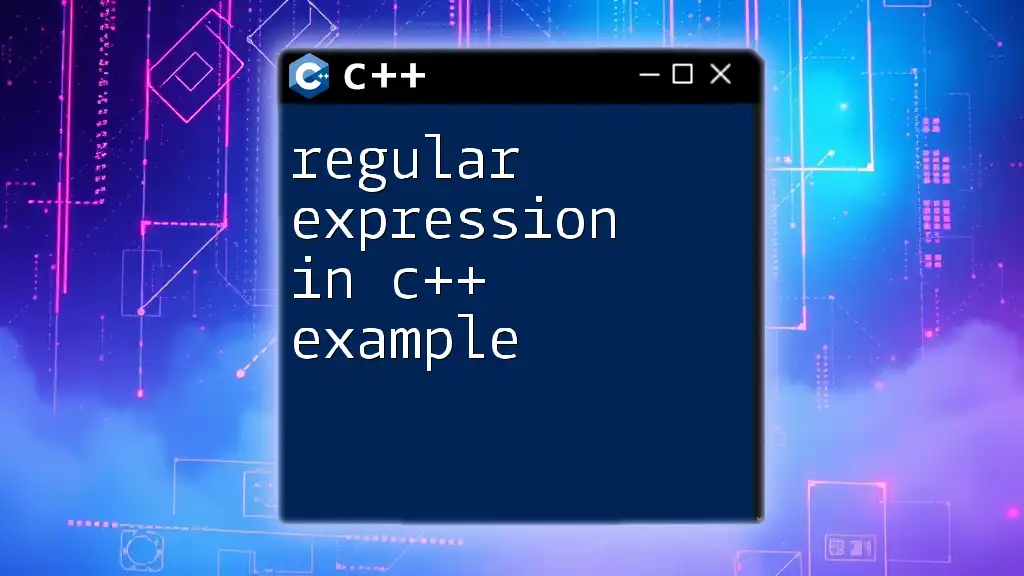
Challenges and Solutions in Modern C++ Design
Common Pitfalls and Misunderstandings
While the features in modern C++ can greatly enhance development, they also come with risks. Common pitfalls include misusing advanced features due to a lack of understanding, leading to code that is both complex and inefficient.
For instance, overusing templates can create intricate interdependencies that complicate the code's structure and readability. Developers must strive to use such features judiciously, prioritizing clarity alongside functionality.
How to Overcome These Challenges
To avoid these pitfalls, developers can:
- Practice writing clear, understandable code by emphasizing simplicity.
- Engage in code reviews to ensure that complex solutions are necessary and justified.
- Continuously learn and stay updated on best practices in modern C++ design through literature and community discussions.
Testing and Debugging Modern C++ Code
With the increased complexity in modern C++ code designs, thorough testing becomes paramount. Employing unit tests can greatly improve reliability and maintainability. Ensuring that code adheres to defined behavior can help catch bugs early in the development cycle.
Utilizing tools like Google Test or Catch2 can streamline the testing process. Additionally, effective debugging strategies, such as leveraging modern IDEs, can aid developers in identifying and resolving issues quickly.

Conclusion
In conclusion, Andrei Alexandrescu's influence on modern C++ design is invaluable. His emphasis on efficient, policy-based patterns and leveraging generic programming techniques has contributed to a more powerful, flexible coding paradigm. By embracing the principles and patterns explored in this article, developers can enhance their C++ skills, writing cleaner, more maintainable code that can adapt to changing software requirements. Exploring these concepts further will lead to a richer understanding of modern C++ design and its applications in real-world projects.

Additional Resources
Numerous resources are available for those looking to dive deeper into the world of modern C++ design:
- "Modern C++ Design" by Andrei Alexandrescu
- Online forums such as Stack Overflow for community-driven support
- Tutorials and MOOCs that focus on advancing C++ proficiency in practical applications.

